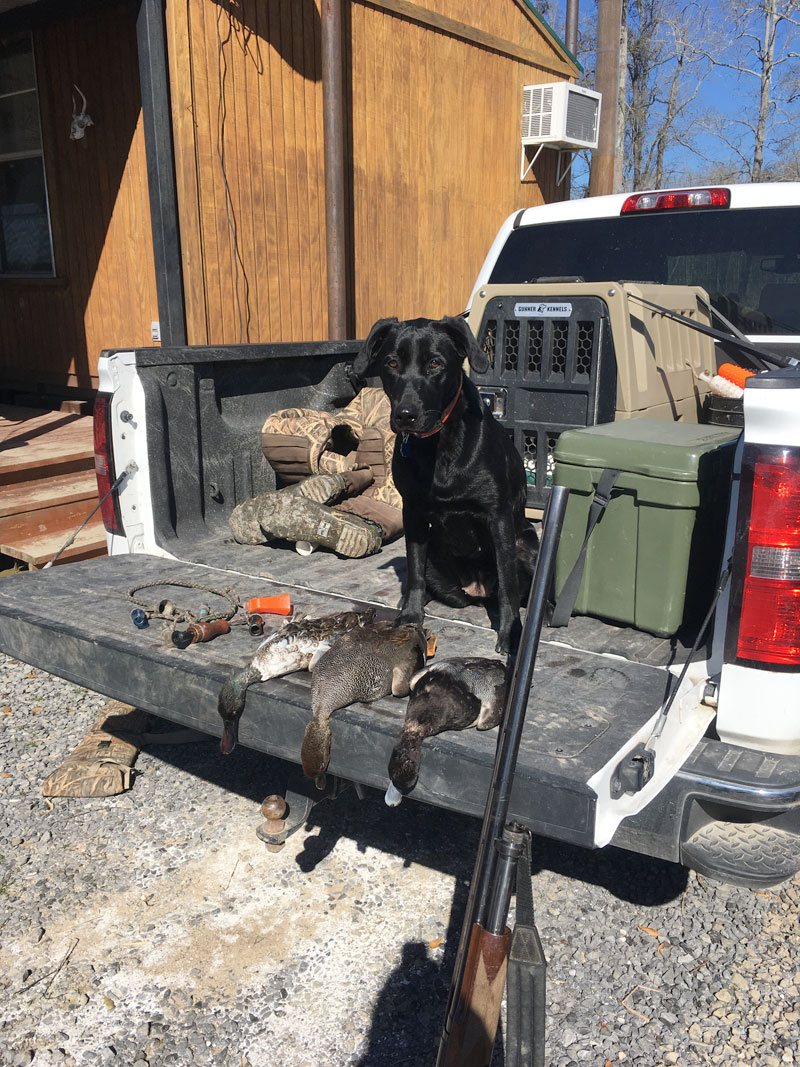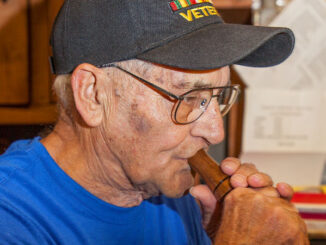
You did your homework and found the perfect pup. Now what? That’s a really big “what” and I’ll admit it can be a little overwhelming. You and your dog have a long journey ahead, from the little fur ball you have now to the experienced and capable dog you want as the end result. Now the work begins!
In terms of training your pup to reach that level, you really only have a couple of options: training the dog yourself or sending the dog to a professional trainer. We’ll take a look at both. No matter which way you go, expect these results with your dog at a minimum:
- Steadiness, meaning it won’t break at gunfire (it only goes when told).
- Marking multiple downed birds and remembering their locations to pick them up.
- Handling via voice, whistle and hand signals to a bird that the dog did not see fall (a “blind retrieve” where all that training pays off).
- Honoring another dog who may be hunting with yours.
- Good temperament and disposition around other hunters and dogs; generally, a pleasure to hunt with.
If you’re considering training your dog yourself, let me share a little of my experience. My first one was with a book, “Water Dog” by Richard Wolters 25 years ago. I go back to it today. It worked for me. That book is 60+ years old and technology has changed the landscape, but the basics are still the same. In today’s digital age, there is a wealth of info such as videos, subscriptions and such online. Soak up all you can and if you pick a subscription, for example, stick with that one as methods may differ between the trainers publishing them.
Luckily, Louisiana has retriever clubs across the state that can be found on the American Kennel Club (AKC) and United Kennel Club (UKC) websites. Check into them and trust me on this, you’ll meet lots of great folks with tons of experience eager to help. I’m a member of the Amite River Hunting Retriever Club near Baton Rouge. I’ve gotten to know some incredible pro and amateur trainers who’ve helped me immensely. The clubs hold seminars and training days outside of duck season geared to all experience levels of dogs and handlers alike. You’ll learn more than you imagined from some great people and have lots of fun. These clubs also train for, and hold tests.

If training your dog yourself sounds like a little too much, and believe me, I get it, the other option is to send your pup to a professional. Louisiana has many great trainers, so finding one will be easy. Start with your hunting circles and social media. From there, reach out to the trainers mentioned. Ask for references and ask questions such as how long they’ve been in business, how many dogs they are training at a time, who will be training your dog (assistants) and costs. Once you’ve narrowed down your choices, meet them at their facilities and have them work dogs currently in training.
Pay attention to the kennels and grounds. They should be clean, safe and in good condition. All dogs should be healthy and in good shape. Once satisfied, discuss what you want out of your dog, agree on price, duration of training as well as anything not covered, like vet bills and medications. If all goes to plan, you should have a good feeling about the trainer you choose. It’s a serious decision with long lasting implications, so leave no doubt.
So what should a trainer expect from you? Steve Riggins is owner of Bear Creek On The Bayou Retrievers in Slaughter. He was kind enough to share his insights.
“Formal training starts at five to six months of age when the adult teeth are set,” he said. “If the trainer offers a puppy program, seriously consider it. Puppies start it at 14-16 weeks and will be introduced to bumpers, live birds, gunfire, shallow water, socialization. It builds trust with the trainer and sets a solid foundation for starting formal training.”
He also offered a few tips you and your pup can start on from 7-14 weeks before going to a trainer, or if you choose the DIY route:
- Acclimate the pup to its new home: housebreaking, kenneling, boundaries and learning that you’re the boss.
- Teach basic obedience such as sit, here and holding eye contact.
- Introduce the pup to wings/feathers, and if you can find some, live clipped pigeons. This builds prey drive.
- Practice short, easy retrieves with a small bumper. Make it fun. Worry about “stay” later. Quit while the pup is still excited. They wear out quickly, so too much turns into work.
- Take the pup anywhere you can. It builds confidence and trust and gets them used to traveling and being in different environments.
This is a marathon, not a sprint, so at first, let the pup settle in and bond with you. Keep it fun in this early stage, and then they’ll be ready to “go to work!”
Steve Riggins can be reached at 225-324-6948 and on Facebook.
